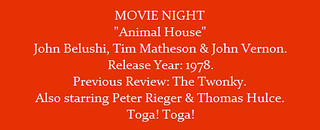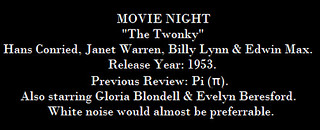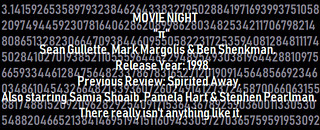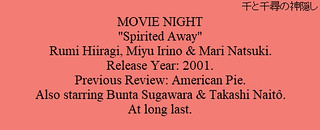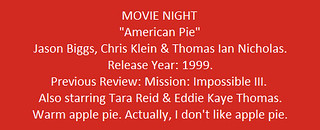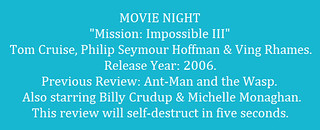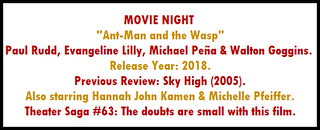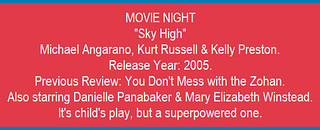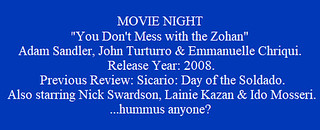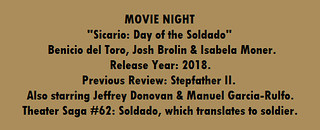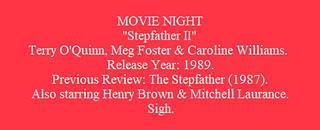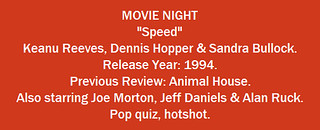
Review #1115: Speed.
Cast:
Keanu Reeves (Officer Jack Traven), Dennis Hopper (Howard Payne), Sandra Bullock (Annie Porter), Joe Morton (Lt. "Mac" McMahon), Jeff Daniels (Officer Harry Temple), Alan Ruck (Doug Stephens), Carlos Carrasco (Ortiz), Glenn Plummer (Jaguar owner), and Richard Lineback (Sgt. Norwood) Directed by Jan de Bont (#812 - Twister)
Review:
At long last, Speed. I never intended for the Upcoming Features to have the film listed for so long (roughly a year or so), but it took a while to find time to do this one. Hope you enjoy.
Speed is an accomplishment in its execution of action and energetic nature that has numerous assets to achieving its goal as a popcorn thriller. This was the directorial debut of de Bont, a Dutch cinematographer who was responsible for numerous films such as Die Hard (1988), The Hunt for Red October (1990) and Basic Instinct (1992). Graham Yost, who had written for television shows such as Hey Dude prior to this movie, was inspired by his father Elwy telling him about Runaway Train (1985), which was about a train speeding out a control that had been based on an idea by Akira Kurosawa. Yost's original script was set entirely on the bus, with the sequence involving the bus looping around being at the parking lot of Dodgers Stadium instead of an aiport. Josh Whedon was brought in to do (un-credited) work prior to main production beginning, with Yost stating that most of the dialogue was written by Whedon, adding "We were very much in sync, it's just that I didn't write the dialogue as well as he did." In any case, having the film not having all of its time on the bus, such as the elevator sequence or parts involving the police (such as Daniels) outside the bus do make the action come off well in not being overwhelming nor sluggish in its 116 minute run-time.
The main three of Reeves, Hopper, and Bullock all manage to stand out well, doing great in their own ways. Reeves proves to be a capable lead hero, having an edge of vulnerability alongside an air of resourceful nature that makes him interesting to watch, whether when jumping a bus or trying to adapt to the situation of the plot. Hopper makes for an entertaining villain, having the right sense of timing with his lines that carry weight with the motivations written without resorting to being generically evil or chewing too much of the scenery, having a sardonic charm to him. Bullock holds her own well, proving to be a capable one to pair off with the action and Reeves, for which they have a fair amount of chemistry with each other. The others also do fine in their time on screen, such as Daniels, Morton, or Ruck, who both pull off their respective mannerisms and motivations well. The bus members don't have too much particular time to really shine, but they are believable people who don't come off as too annoying or too painfully generic.
The movie is a thrill ride from start to finish, having a consistency to what it wants to execute on screen that rewards the eyes without assaulting it. It isn't the kind of movie that wants to challenge the viewer too heavily, but it sure will give them something to behold in terms of what could and what does happen without being insulting to their intelligence or pushing things too far, having its share of fun moments. Arguably the most notable moment of the film is the bus jump scene. California Interstates 105 and 110 were used for a majority of the freeway sequences in the film, and while de Bont was scouting the area he noticed that there were missing sections and was inspired to add the sequence. Not to spoil too much about the stunt itself (or the feasibility of doing said stunt), but the sequence as a whole is breathtaking to watch, having a certain excitement that never falls prey to feeling too unbelievable. On the whole, the film works on a level of consistency that can be appreciated and aspire to after over two decades. It is the kind of movie you can appreciate on a technical level, where it even received Academy Awards for Best Sound Editing and Best Sound Mixing. There is enough suspense to make for an incredible time for viewers, especially ones with action in mind.
Overall, I give it 8 out of 10 stars.

